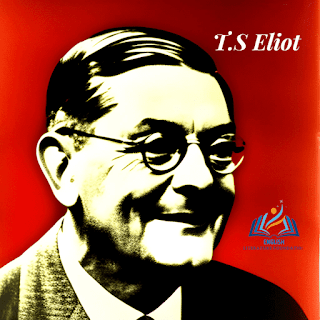Metaphysical Poets and Tradition and Individual Talent by Eliot
Introduction
In the world of poetry, the Metaphysical poets have left an indelible mark on literary history. Their unique style and unconventional themes challenged traditional notions of poetry during the 17th century. T.S. Eliot, a prominent modernist poet and critic, delved into the characteristics of metaphysical poetry in his influential essay, "Tradition and Individual Talent." This article aims to provide a detailed summary of Eliot's essay and explore the significance of metaphysical poets in relation to literary tradition.
Overview of Metaphysical Poets
To understand Eliot's essay, it's crucial to have a comprehensive understanding of metaphysical poets. These poets, including John Donne, George Herbert, and Andrew Marvell, were known for their intellectual and philosophical approach to poetry. They combined intricate metaphors, wit, and complex imagery to explore profound subjects like love, religion, and the human condition.
The Significance of Metaphysical Poets
The metaphysical poets of the 17th century, including John Donne, George Herbert, and Andrew Marvell, challenged the conventional poetic norms of their time. Their poetry was characterized by its intricate metaphysical conceits, intellectual complexity, and innovative use of language. Eliot argues that these poets, despite being relatively unappreciated in their era, made a profound impact on the development of English poetry.
Key Themes in Metaphysical Poetry
Metaphysical poetry encompassed several key themes, including the exploration of love, spirituality, and the nature of existence. The poets often employed conceits, which were elaborate and extended metaphors, to convey abstract ideas in a tangible and relatable manner. Their works celebrated the beauty of language and sought to engage readers in intellectual contemplation.
Tradition and Individual Talent: Eliot's Perspective
In "Tradition and Individual Talent," T.S. Eliot argues that every new poet should be aware of the literary tradition they inherit. He emphasizes that poets should not try to break away from tradition but rather embrace it and contribute to its evolution. According to Eliot, the individual talent of a poet can only be realized through a deep understanding and assimilation of the past literary achievements.
Tradition as a Living Force
According to Eliot, tradition should not be perceived as a stagnant and restrictive force but rather as a living and dynamic entity. He asserts that true artists do not simply imitate their predecessors but engage with the rich cultural and literary heritage to create something new and original. In this context, the metaphysical poets were not rebels against tradition; rather, they drew inspiration from it and expanded the possibilities of poetic expression.
Significance of Tradition and Individual Talent Today
Eliot's ideas about tradition and individual talent remain relevant today. They remind us that art does not exist in isolation but is part of an ongoing dialogue with the past. By recognizing the value of tradition, contemporary poets can build upon the foundation laid by their predecessors and create works that contribute to the evolution of literature.
Analysis of Eliot's Essay
Eliot's essay explores the interplay between tradition and the individual talent of a poet. He argues that true originality does not come from rejecting tradition but from engaging with it creatively. By drawing inspiration from the works of the past, poets can bring new perspectives and add richness to the ongoing literary conversation.
Influence of Metaphysical Poets on Eliot
Eliot acknowledges the profound influence of metaphysical poets on his own poetry. He found inspiration in their use of unconventional metaphors and their ability to bridge the gap between the physical and the abstract. The metaphysical poets' focus on intellectual exploration and complex thought deeply resonated with Eliot's own artistic sensibilities.
Eliot's Contribution to Literary Tradition
Through his essay, Eliot not only analyzes the metaphysical poets but also contributes to the ongoing literary tradition. He encourages poets to be conscious of the historical context in which they write and to incorporate elements from the past into their own work. Eliot's critical insights have had a lasting impact on the study and interpretation of poetry.
Comparing Metaphysical Poets and Modernist Writers
While metaphysical poets and modernist writers emerged in different periods, there are intriguing parallels between their works. Both challenged conventional poetic forms and sought to express complex ideas through innovative techniques. Examining the similarities and differences between these two literary movements offers valuable insights into the evolution of poetry over time.
Relevance of Metaphysical Poetry in Contemporary Literature
Despite being written centuries ago, metaphysical poetry continues to resonate with contemporary readers and writers. Its exploration of universal themes and inventive use of language provide a source of inspiration for poets today. The enduring appeal of metaphysical poetry lies in its ability to evoke profound emotions and provoke intellectual contemplation.
Examples of Metaphysical Poems
To illustrate the distinct characteristics of metaphysical poetry, it is helpful to examine specific examples. Poems like John Donne's "The Flea" and Andrew Marvell's "To His Coy Mistress" showcase the poets' unique blend of wit, intellect, and emotional depth. These works offer glimpses into the intricate world of metaphysical poetry and its lasting impact on literary expression.
Impact of Metaphysical Poets on English Literature
The metaphysical poets significantly influenced the course of English literature. Their bold experimentation with form and language laid the groundwork for future poetic movements. Their intellectual approach to poetry expanded the possibilities of expression and inspired generations of poets to come.
The Influence of Metaphysical Poetry on Later Poets
Eliot argues that the metaphysical poets' innovative techniques and intellectual rigor had a lasting impact on subsequent generations of poets. He suggests that the modern poets can learn from the metaphysical poets' ability to harmonize reason and emotion, intellectual depth and sensuousness. By engaging with the metaphysical tradition, contemporary poets can infuse their work with renewed vitality and relevance.
Critics' Views on Metaphysical Poetry
Metaphysical poetry has not been without its critics. Some scholars argue that the complexity and intellectualism of these poems can be alienating for readers. However, others contend that the intricate metaphors and dense imagery create a rich and rewarding reading experience. Exploring the divergent opinions surrounding metaphysical poetry adds depth to the ongoing conversation about its value and relevance.
Evolution of Poetry: From Metaphysical to Modernism
The transition from metaphysical poetry to modernism marked a significant shift in literary history. Modernist writers, including T.S. Eliot himself, embraced a fragmented and experimental approach to language and form. Understanding the connection between these two literary movements provides insights into the evolution of poetry and the ways in which poets have continued to push boundaries.
The Metaphysical Poets' Paradoxical Imagery
Eliot explores the distinctive features of metaphysical poetry, including its paradoxical imagery. He highlights the poets' ability to juxtapose seemingly contradictory elements to evoke profound insights. The metaphysical poets often employed unconventional metaphors and analogies, drawing connections between disparate ideas to illuminate complex philosophical and spiritual themes.
The Role of Individual Talent
While tradition forms the foundation of poetic creation, Eliot emphasizes the crucial role of individual talent in the creative process. He asserts that genuine poets do not merely replicate past forms and themes but bring their own unique perspectives and experiences to bear on their work. The individual talent of a poet lies in their ability to integrate tradition with their personal vision, resulting in the creation of something distinct and meaningful.
Conclusion
In conclusion, T.S. Eliot's essay "Tradition and Individual Talent" offers a profound exploration of the metaphysical poets and their influence on literary tradition. By emphasizing the importance of engaging with the past, Eliot encourages poets to contribute to the ongoing conversation while acknowledging the richness of the poetic heritage. Metaphysical poetry continues to captivate readers with its intellectual depth and imaginative use of language, making it an enduring source of inspiration for contemporary writers.
FAQs
- Q: Who were the metaphysical poets?
A: The metaphysical poets were a group of 17th-century poets, including John Donne and George Herbert, known for their intellectual and philosophical approach to poetry.
- Q: What is a conceit in metaphysical poetry?
A: A conceit in metaphysical poetry refers to an extended and elaborate metaphor used to convey abstract ideas in a tangible and relatable manner.
- Q: How did T.S. Eliot contribute to literary tradition?
A: T.S. Eliot contributed to literary tradition through his critical insights and emphasis on the importance of engaging with the past in order to create meaningful and innovative poetry.
- Q: Why is metaphysical poetry still relevant today?
A: Metaphysical poetry remains relevant today due to its exploration of universal themes, inventive use of language, and ability to evoke profound emotions and intellectual contemplation.
- Q: What is the difference between metaphysical poetry and modernism?
A: While both metaphysical poetry and modernism challenged conventional forms, metaphysical poetry emerged in the 17th century, whereas modernism developed in the early 20th century with a more fragmented and experimental approach to language and form.

